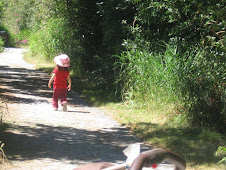Step-parenting is difficult. The negatives are heard more often than the positives when parenting in a blended family but there are things that can be done to make step- parenting easier. Perhaps some of the following suggestions will help you with your step- parenting woes.
Under the list of woes, most step-parents mention the lack of respect as one of the issues with comments such as 'why should I listen to you, you're not my real mother' (or father as the case may be). Other problems are when both the biological parent and child take sides against you; the child plays one parent against the other; children try to break the spouses up; having feelings of guilt because you may not feel the same way about your step-child as you do your own children, or when there are conflicts between the two partners. Other difficulties step-parents may face are not being invited to something while the birth parent is; the child lying about something you have said; ignoring you in your own home, or talking about the past at every chance they get so that you are excluded from the conversation. These are very real issues and can cause problems within blended families.
But there are wins also, Children learn from those they live with more than from anyone else. As a step-parent, you can be a positive role model and can experience the rewards of seeing your influence in the life of your step-child as they grow older. When you slowly and effectively erode your step-child's distrust of you by being loving, patient and kind and eventually witnessing the change in them. Young children especially will react to love if it is given consistently and without restrictions and often they will respond in kind. You will know then that the struggle has been well worth it. And especially if they one day call you their mother or father or introduce you as such.
There are many things that can be done to help towards having more wins than woes in your blended family. The following are some of the ways:
- offer loving guidance by helping your spouse in the role of parenting;
- it is important to begin slowly and let things develop naturally – children need to be ready to accept the change. And children know when adults are being sincere;
- the age of children will make a difference. Younger children will adjust more easily than older ones. According to statistics, children under ten are the most likely to accept a new adult into their life. Children between ten and fourteen years of age have the most difficulty adjusting to a step-family situation. Those who are fifteen years and older may have less involvement in step-family life as they are beginning to form their own identities;
- most older children prefer verbal praise and compliments rather than hugs and kisses;
- with older children it is preferable to begin on a friend-first basis;
- encourage your step-child's relationship with their own mother/or father. Children will appreciate this, even if they don't say it;
- success in blending will depend on several things. Among them are: How long ago did their parents divorce or the other parent die? How long and how well before the marriage did they know you? Did they see you often before the marriage? Were they fun events during the times you did see them? Does your partner have a good relationship with his/her children? How do the two ex's get along – is there tension and conflict? How much time do you spend with the children? If it is only every second weekend, it will take much longer to build a relationship;
- allow birth parent and children time together on their own;
- put the needs of the child first;
- be consistent with house rules for all children living in the house;
- create your own family traditions that everyone can be involved in – ones that will excite everyone. It takes time to develop a family history;
- have open communication, positive attitudes, mutual respect, patience and lots of love;
- be realistic and don't expect too much;
- don't disrupt an already established routine. Don't come in like a bulldozer and expect things to be your way;
- don't take things personally. There is a lot involved in the dynamics of any family and all changes take time and adjustment;
- remember that children, no matter what their age, need to feel safe, secure, loved and appreciated.
With patience, tolerance, hard work and a lot of love, there is a good opportunity to enjoy more wins than woes. But if the children are still not coming around, at least know you're trying your best and it may just take a little longer, especially if you are dealing with older children. Everything worth achieving takes time.
Subscribe to:
Post Comments (Atom)





















































































No comments:
Post a Comment